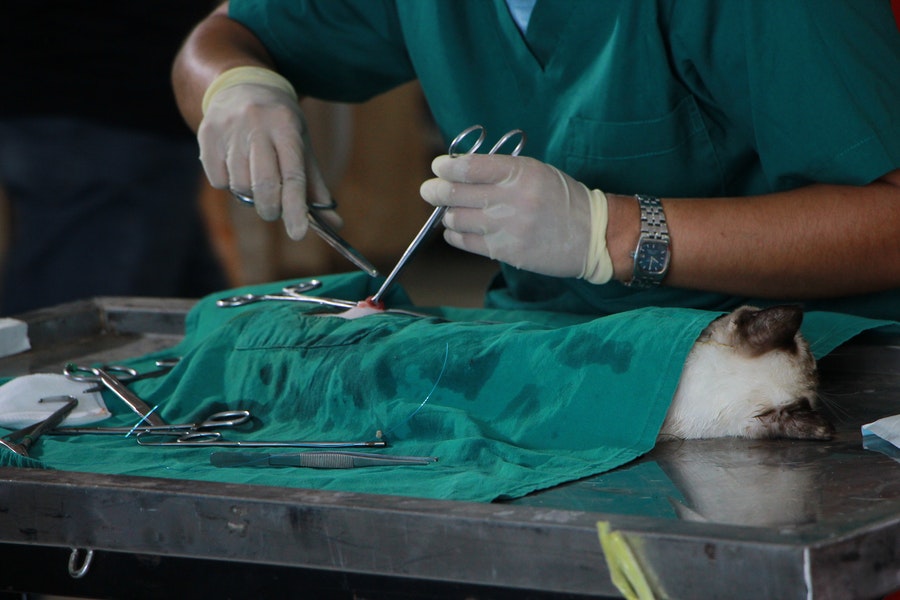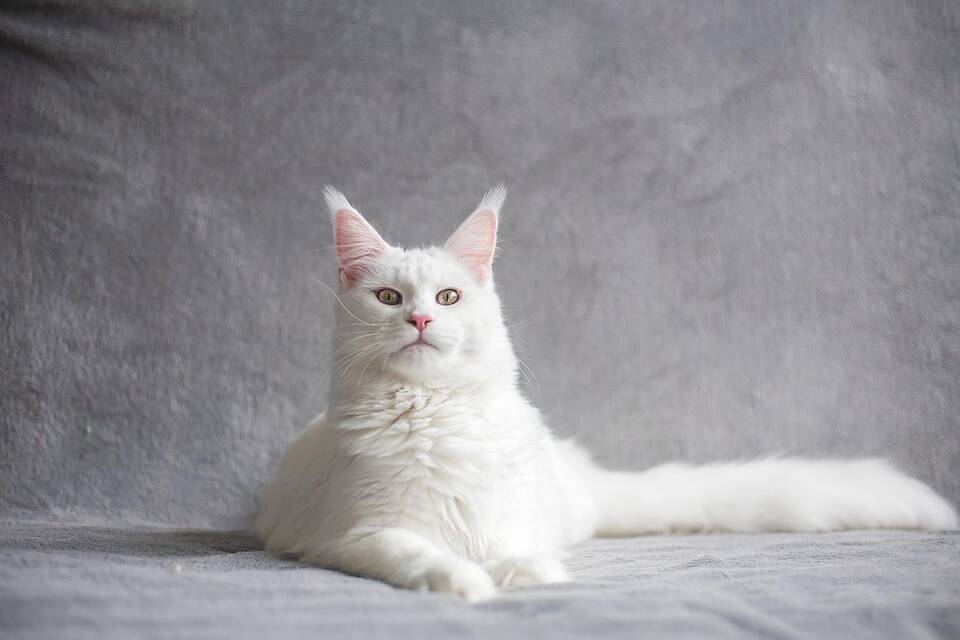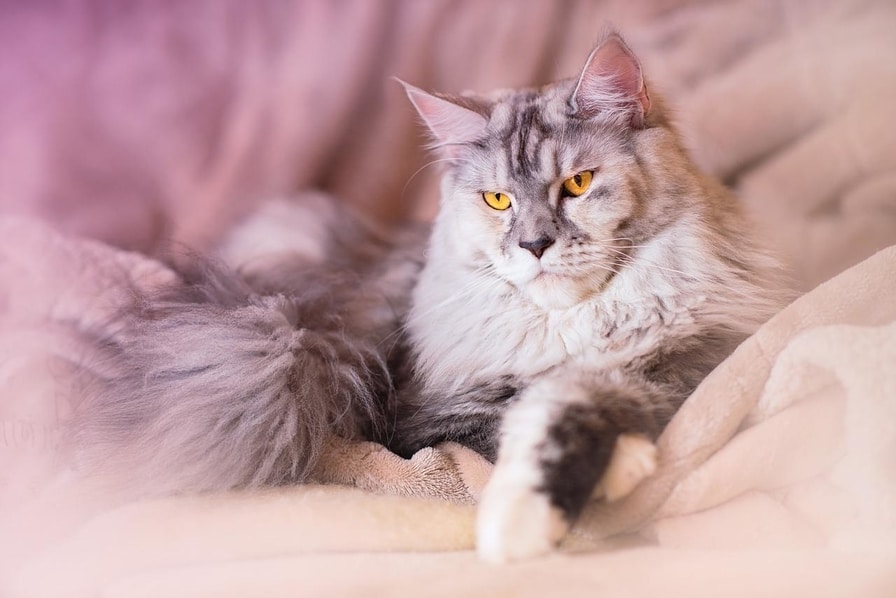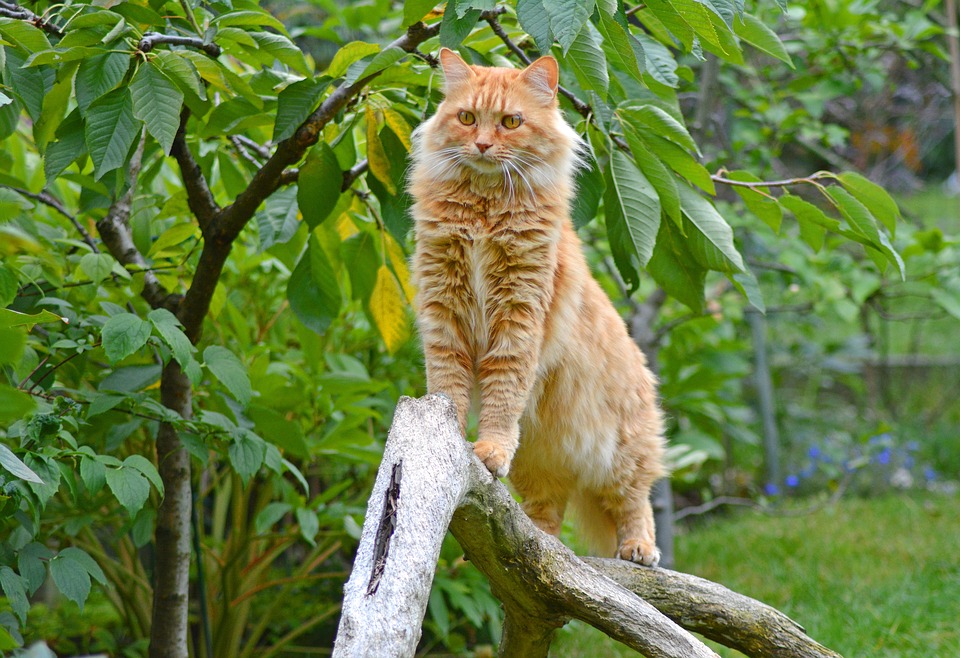Maine Coon Hypertrophic Cardiomyopathy is a heart condition that affects Maine Coon cats. If you are the owner of a Maine Coon, it is important to be aware of this condition and to watch for signs of trouble. In extreme cases, HCM can lead to heart failure.
Luckily, with early recognition and treatment, most cats with HCM can live long and healthy lives.
So what exactly is HCM, and how can you ensure your cat stays healthy?
What Is Maine Coon Hypertrophic Cardiomyopathy?
Maine Coon Hypertrophic Cardiomyopathy (HCM) is a heart condition that affects Maine Coon cats. The condition is caused by an overgrowth of the heart muscle (hypertrophy), which can lead to heart failure. Symptoms of HCM include shortness of breath, coughing, and lethargy. Treatment for HCM includes medications to help improve heart function and lifestyle changes such as diet and exercise.
There are two types of HCM that a cat may be going through:
Obstructive
Obstructive HCM is when the heart muscle becomes thick and stiff. This makes it harder for the heart to pump blood.
Non-obstructive
Non-obstructive HCM is when the heart muscle becomes thick and stiff but does not cause any obstruction to blood flow.
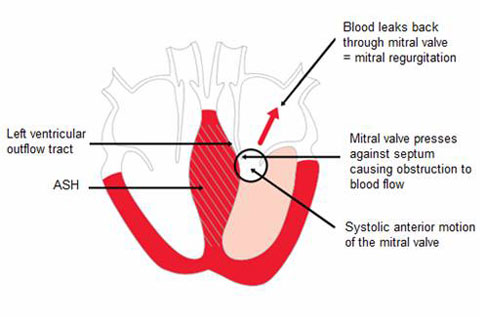
Maine Coon Hypertrophic Cardiomyopathy Symptoms
HCM is often inherited, but it can also develop in an animal without any known history of the disease.
Maine Coon hypertrophic cardiomyopathy usually affects only Maine Coons, but research suggests that other purebred and random-bred cats may be affected.
Symptoms vary depending on whether or not the cat has obstructive HCM. Obstructive HCM symptoms are generally more severe than non-obstructive HCM symptoms, and they happen earlier in life.
Signs and Symptoms of Obstructive HCM:
- Difficulty breathing due to pressure on the right side of the heart behind the breastbone; worse during activity or while eating.
- Rapid breathing, especially when the cat is excited.
- Breathing problems during exertion, such as while playing.
- Heart murmurs.
Now that we know the symptoms of HCM. Let’s take a look at the common ways to diagnose the condition in Maine Coon cats.
How To Diagnose Maine Coon Hypertrophic Cardiomyopathy
There are several ways to diagnose hypertrophic cardiomyopathy in Maine Coon cats.
One way is to have an echocardiogram done, which is a type of ultrasound that uses sound waves to create a picture of the heart.
This test can help determine if there is any thickening or enlargement of the heart muscle.
Another way to diagnose hypertrophic cardiomyopathy is with a cardiac MRI, which can provide more detailed information about the structure and function of the heart.
Tips To Care For A Maine Coon With HCM
If your Maine Coon cat has hypertrophic cardiomyopathy (HCM), it is important to keep a close eye on them and make sure they are getting the care they need.
Tips On How To Care For A Cat With HCM:
- Make sure your cat gets regular checkups from a veterinarian.
- Monitor your cat’s weight and diet, and make sure they are not gaining or losing weight abruptly.
- Keep an eye on your cat’s activity level and make sure they are not overexerting themselves.
- If your cat is diagnosed with HCM, they might need to switch medications. If this happens, be sure to monitor their body for side effects.
- When on medication, check your cat’s litter box regularly and make sure there is no evidence of blood or mucus in their stool.
- Let your veterinarian know immediately if you see any symptoms of HCM in your cat so that they can catch an issue early before it becomes more serious.
- Take the time to notice what triggers a pain episode for your cat so you know how to help them when one occurs. Some common triggers are stress, getting excited or playing too hard, or lying on their stomachs.
- Monitor your cat’s water intake during times of increased activity and make sure they are staying hydrated by offering fresh water at all times. Dehydration can cause kidney dysfunction which can affect the heart.
- Avoid playing with your cat too aggressively, try not to let them jump off high surfaces or furniture, and monitor them for breathing problems after physical activity. Exertion can bring on an HCM episode even in cats who have had no previous issues with it. If you notice heavy breathing before an episode occurs, take steps to minimize their stress level or increase their activity tolerance time before an episode begins if at all possible.
How Long Does A Maine Coon With Hypertrophic Cardiomyopathy Live?
The life expectancy of a Maine Coon cat with hypertrophic cardiomyopathy can vary depending on the severity of the condition and how well they are managed.
However, once congestive heart failure has begun most cats will live between 6 to 18 months.
Do Cats Experience Pain During Heart Failure?
Heart failure is not typically painful for cats, but they may experience difficulty breathing or a lack of energy.
Some common symptoms of heart failure in cats include difficulty breathing, lethargy, weight loss, increased resting respiratory rate, and a lack of appetite.
Another symptom of HCM is a saddle thrombus.
A saddle thrombus is the most common type of blood clot seen in cats. It’s also known as a “thrombosed hematoma”.
It usually occurs in the back part of the abdomen, and it’s usually fatal if treatment isn’t given.
It also paralyzes the cat’s hind legs, often the cat’s legs go cold and can show a bluish color under the fur. The cat is most certainly in pain if this happens.
Maine Coons Are Predisposed To HCM
Maine Coon cats can have HCM genes. This means they are genetically predisposed to this illness.
Approximately one-third of Maine Coon cats have hypertrophic cardiomyopathy.
However, sometimes a Maine Coon may not have the gene but they will have HCM anyway.
If you’re interested, check out our article on other health issues that Maine Coons are susceptible to.
Maine Coon Hypertrophic Cardiomyopathy – Ways To Reduce The Risk
There are a few ways to reduce the risk of hypertrophic cardiomyopathy in cats. Some things you can do are to have your cat screened regularly by a veterinarian, keep your cat at a healthy weight, and feed your cat a high-quality diet.
You can also try to keep your cat active by playing with them regularly.
However, it’s important to remember that most of the time in Maine Coon cats, the disease is hereditary.
Which means there is no way to prevent it or reduce the risk.
If you want to find out whether it’s genetic you can get a DNA test done for your cat.
Additionally, you can buy your Maine Coon from a registered breeder. They should be able to give you the cat’s health records.
Maine Coon Hypertrophic Cardiomyopathy Breeding Programmes
Organizations such as the International Cat Care have breeding programs in place to tackle this disease in Maine Coon cats.
The main objective of breeding programs is to reduce the prevalence of genetic disorders.
Basically, they carry out DNA tests on the cats before they breed to ensure none of that cats carry the genes for the genetic disorder.
Some people worry about the welfare of the cats in this situation.
However, it’s important to remember that all cats under breeding programs are well supervised by registered veterinarians, and tests are carried out in trusted testing laboratories.
Conclusion
Maine Coon hypertrophic cardiomyopathy (HCM) is a heart disease that affects Maine Coon cats. It is caused by a mutation in the gene for cardiac myosin-binding protein C (cMyBP-C).
This mutation results in an abnormal amount of thickening of the heart muscle. HCM can cause heart failure and death in affected cats.
The Maine Coon breed is particularly susceptible to HCM because of this genetic mutation.
All Maine Coons should be screened for HCM at least once, and preferably twice, between the ages of one and five years old.
There is no cure for HCM, but there are treatments available that can help prolong the life of an affected cat.
We hope you learned something from this article. If you did, think about giving it a share.
Also, please let us know in the comment section below if you have any advice on how to help Maine Coon cats with HCM.
Elliot is the owner and lead writer at Lais Lairs. He is the proud owner of a Maine Coon/Siberian Mix cat named Lai. His oldest cat lived to be 18 years old so he’s learned a thing or two about keeping pets. When he’s not writing you can find him playing video games or playing fetch with Lai.
